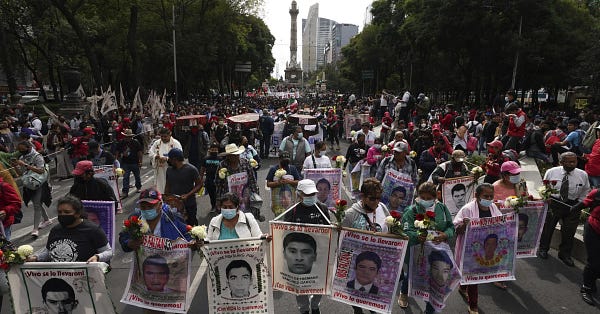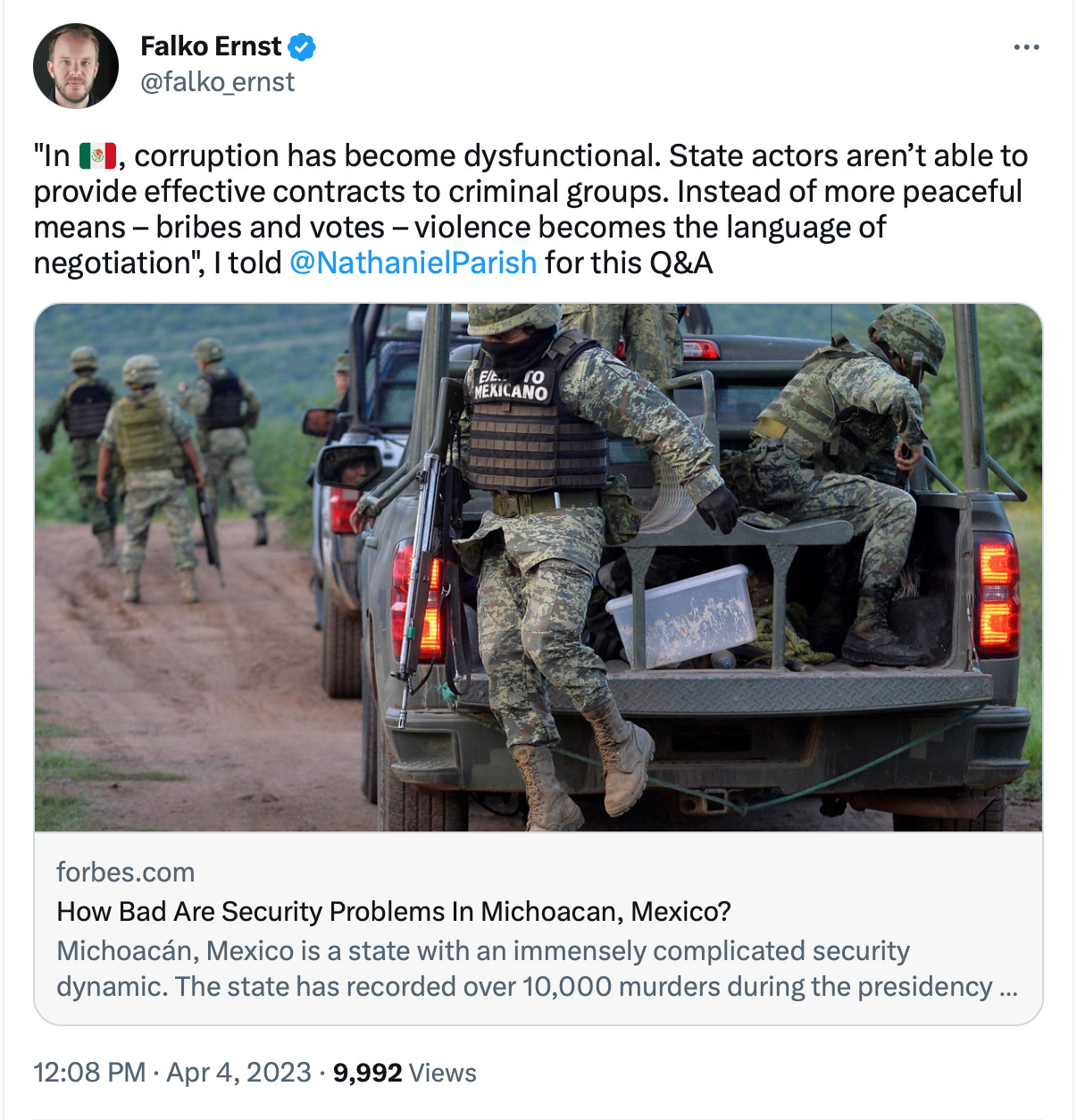China on fentanyl trafficking: Never heard of it
AMLO asks China to deal with fentanyl precursors as 'rude' US lawmakers demand action
This week’s news roundup includes: Mexico asking China to help deal with fentanyl precursors; migrants in Ciudad Juárez alleging guards reased those paying bribes from detention; and AMLO trades barbs with Sen. Lindsey Graham.


“China has not been notified by Mexico about any seizure of fentanyl from China, ministry spokesperson Mao Ning said at a regular briefing.
“‘U.S. needs to face up to its own problems and take more substantive measures to strengthen regulation within its borders and reduce demand,’ Mao said, referring to drug abuse as a problem "made in the U.S.”


“López Obrador complained about calls in the United States to designate Mexican drug gangs as terrorist organizations. Some Republicans have said they favor using the U.S. military to crack down on the Mexican cartels.
“‘Unjustly, they are blaming us for problems that in large measure have to do with their loss of values, their welfare crisis,’ López Obrador wrote to Xi in the letter published Tuesday. ‘These positions are in themselves a lack of respect and a threat to our sovereignty, and moreover they are based on an absurd, manipulative, propagandistic and demagogic attitude.’”

“I wish to work with you and your government to deal with the Mexican cartels that exist in your country that are producing fentanyl at an alarming rate, killing thousands of Americans. ... The problem that I have with you, to be honest with you mister president, is that you deny there are areas of your country controlled by drug cartels. You are in denial.”
“Each migrant was paying around $200 to $500 to be released,” said one guard who worked at the facility for four years, including the night of the fire. He asked to remain anonymous to avoid retaliation. “We locked the doors at 7 p.m. and if they paid before then we would let them out. Otherwise they were deported to their countries or sent to Mexico City.”
“The secret contract — which The New York Times is disclosing for the first time — violates the Biden administration’s public policy, and still appears to be active. The contract, reviewed by The Times, stated that the ‘United States government’ would be the ultimate user of the tool, although it is unclear which government agency authorized the deal and might be using the spyware. It specifically allowed the government to test, evaluate, and even deploy the spyware against targets of its choice in Mexico.”


“The students’ bodies have never been found, though fragments of burned bone have been matched to three of the students.
“The experts group said previously that there is evidence a number of military personnel were following the events of that night closely yet did not intervene to save the students — or even a soldier had infiltrated the teachers’ college, which is noted for left-wing activism.
“Phone intercepts that are part of a drug trafficking case in Chicago have also established close contact between members of the Mexican military and the Guerrero Unidos gang, which allegedly was given the students after they were seized by police.”
“The Spanish group’s move comes after years of pressure on the company from the leftist government of President Andrés Manuel López Obrador, who hailed the purchase as a ‘new nationalisation’. The Mexican leader has taken a particularly hostile stance towards Spanish corporate investment because of the country’s colonial history and the deal satisfies López Obrador’s ambitions to increase the proportion of electricity generation in state hands.”
“Gaining expertise in parts manufacturing for electrical motors will be a challenge, according to German Carmona Paredes, who teaches mechanics and energy at the Engineering School in Mexico’s National Autonomous University (UNAM). He is worried that the local industry will struggle to adapt to the high tech required by EVs. ‘The biggest challenge for Mexico has to do with batteries, electronics, and electrical motors,’ he told Rest of World, noting a large percentage of these components are chiefly made in China and are exported to Mexico just for assembly.”
“I say political because, from the outside, it’s tempting to exclusively focus on the most visible part of the conflict: the guys on the ground with the AKs. But, their existence is the result of negotiations with state institutions and officials. Too many government officials and public servants are on the take, enabling armed groups to bend law and state action in their interest. Elections are a key arena where both sides integrate. Criminal groups translate territorial control into the ability to channel blocks of votes and financing to candidates. Once in office, the favors they owe undercut the notion of the public good as a priority. Within the geographic areas in which they operate, criminal groups also exercise population control – and from that perspective, they are de facto political actors.”

“Total foreign investments to the region have dropped by 35% over the past decade. In the 1990s., Latin America accounted for 43% of all global investment flows to emerging countries, but that figure has fallen to about 15% today, the [World] bank says.
“And Latin America’s exports remain ‘among the lowest in the world’ in relation to the region’s economy. Exports have remained stagnant over the past 20 years, the bank’s study says. … Considering the region’s closeness to the U.S. market and its trade agreements, ‘It is exporting much less than what one would expect.’”










